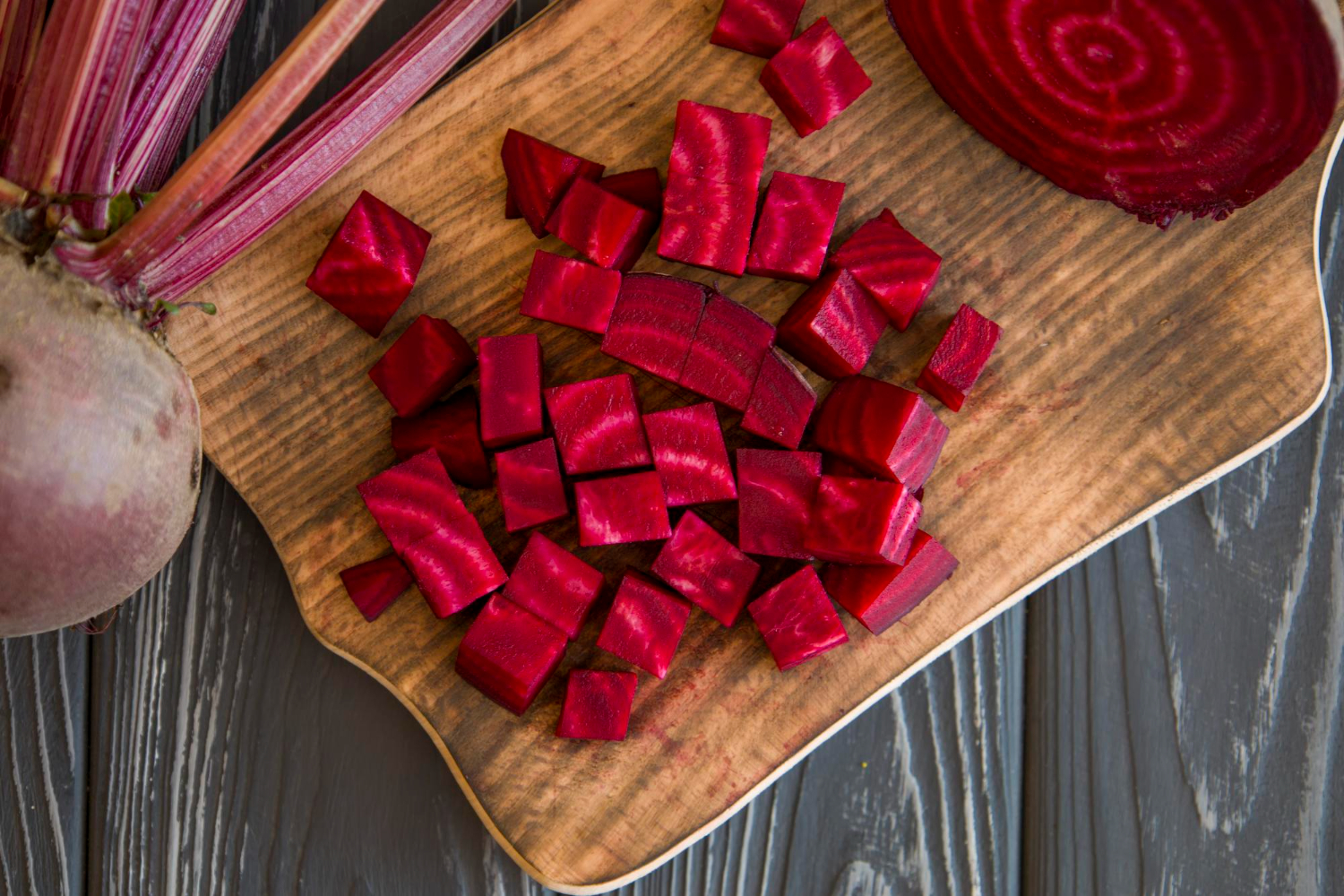Beet chews have become popular as a convenient way to boost heart health and overall wellness. These tasty snacks often contain beetroot powder and other beneficial ingredients like grape seed extract. They are designed to support normal blood pressure and improve energy levels, making them a simple addition to a daily routine.
Many people enjoy beet chews for their portability and ease of use. Unlike traditional supplements, they provide a flavorful option that can be taken on the go. As more individuals look for natural ways to enhance their health, beet chews stand out as an appealing choice.
Research shows that beets can enhance blood flow and support cardiovascular health. With various brands offering different flavors and formulations, understanding the benefits of beet chews can empower consumers to make informed choices.
What Are Beet Chews
Beet chews are chewable supplements made primarily from beetroot and other ingredients that aim to support heart health. They are popular for their convenience and flavor, offering an easy way for individuals to incorporate beneficial nutrients into their diets.
Composition and Ingredients
Beet chews typically contain concentrated beetroot extract, which is rich in nitrates. Nitrates help boost nitric oxide production in the body. This can promote better blood flow and support heart health.
Many products also include additional ingredients like grape seed extract or CoQ10. Grape seed extract has antioxidant properties, while CoQ10 is known for supporting energy production in cells.
Other common ingredients might include natural flavors and sweeteners, such as berry extracts, which enhance taste. Always check labels to understand the specific composition of each brand.
Health Benefits
Beet chews offer several potential health benefits. They may help improve blood pressure by enhancing nitric oxide levels. Research suggests that increased nitric oxide can lead to better circulation.
In addition, the antioxidants present in beet chews may help reduce oxidative stress in the body. This can contribute to overall heart health and wellness.
Regular consumption of beet chews might also enhance athletic performance by improving endurance. Many athletes include them in their routines for added benefits.
Each individual’s response may vary, so it is essential to consult with a healthcare provider before starting any new supplement regimen.
Production Process of Beet Chews
The production of beet chews involves careful sourcing, innovative manufacturing techniques, and strict quality control. Each step ensures that the final product is both effective and safe for consumers.
Sourcing of Beets
Beets used in supplements are typically sourced from regions known for high-quality produce. These areas often have rich soil and favorable climates that enhance nutrient content.
Farmers select beet varieties that are high in nitrates, which are crucial for boosting nitric oxide levels in the body. Many manufacturers prioritize organic beets, free from synthetic pesticides and fertilizers.
This commitment not only supports health benefits but also aligns with consumer preferences for natural products. After harvesting, beets undergo initial cleaning to remove dirt and contaminants, ensuring only the best quality root vegetables enter the production line.
Manufacturing Techniques
The manufacturing process for beet chews includes several key steps. First, the cleaned beets are processed into powder or extract form, using methods like freeze-drying or juicing.
Freeze-drying helps preserve nutrients and flavor while reducing water content. Once processed, the beet extract is combined with other natural ingredients like grape seed extract for enhanced health benefits.
The mixture is then formed into chewable gummies using a molding process. This method ensures consistent texture and dosage. After shaping, the chews are cooled and packaged for distribution, maintaining their freshness and potency.
Quality Control and Safety
Quality control is critical throughout the production of beet chews. Manufacturers conduct regular testing of raw ingredients to ensure they meet safety and quality standards.
Finished products undergo further testing for consistency in taste, texture, and nutrient content. Any batch that does not meet specific criteria is discarded to maintain product integrity.
It is also important that these supplements are free from harmful additives and allergens. Manufacturers often conduct third-party testing to verify the absence of toxins, providing consumers with peace of mind regarding their health choices.
Consumption and Usage Guidelines
Beet chews are popular for their potential health benefits, particularly in supporting heart health. It is important to know the recommended dosages and potential side effects before incorporating them into a daily routine.
Recommended Dosages
For beet chews, the typical recommended dosage is 1 to 2 chews per day. This amount may vary based on individual health needs and product instructions.
Some manufacturers suggest starting with one chew to assess tolerance. If no side effects occur, users may increase the dosage gradually.
Beet chews often contain concentrated beet extract. Therefore, it’s crucial not to exceed the recommended amount to avoid excessive intake of nitrates, which may lead to health issues.
Potential Side Effects
While beet chews are generally safe, some users may experience side effects.
Common side effects can include:
- Stomach discomfort: This may occur, especially in individuals with sensitive digestive systems.
- Changes in urine color: Some may notice a reddish tint, which is harmless and due to beet pigments.
Allergic reactions are rare but possible. Anyone with known sensitivities to beets or related foods should consult a doctor before use.
It is advisable to monitor personal tolerance and consult a healthcare professional if any unusual reactions occur.
Market Trends and Consumer Perception
The market for beet chews is growing as consumers become more health-conscious. Many individuals seek natural supplements that support heart and brain health. Understanding consumer demographics and preferences helps brands tailor their offerings. Additionally, the market shows promising growth predictions.
Demographics and Consumer Preferences
Beet chews appeal to a diverse consumer base. The primary users are health enthusiasts, fitness lovers, and individuals dealing with high blood pressure. Age plays a role too, as younger consumers often seek supplements for energy and performance, while older adults focus on heart health.
Consumer preferences include:
- Taste: Many prefer flavorful options, leading to the popularity of cherry and berry flavors.
- Convenience: Chewable forms are favored for ease of use compared to powders or pills.
- Natural Ingredients: There is a strong demand for products made from natural sources like beets.
Market Growth and Predictions
The beet chew market is experiencing significant growth. Reports indicate this segment could see annual growth rates of 10% or more over the next five years. Factors such as increasing awareness of the benefits of nitric oxide and rising demand for plant-based supplements are driving this trend.
Additionally, companies are expanding their product lines. Innovations include variations like collagen-infused beet chews aimed at enhancing skincare benefits. Key market insights include:
- Emerging Brands: New entrants are vying for market share by offering unique flavors and formulations.
- Consumer Education: Brands are investing in marketing campaigns to inform consumers about health benefits.
This combination of trends positions beet chews as a growing niche in the health supplement market.



